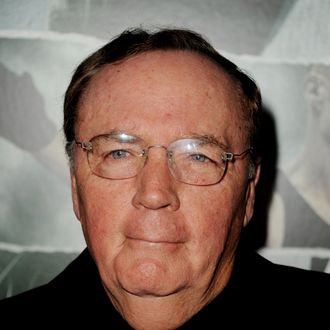
At a luncheon today at Book Expo America, the publishing trade fair that opened yesterday at the Javits Center, the American Booksellers Association honored James Patterson as its Indie Champion Award Winner. The one-man best-seller factory might have been an unlikely candidate for the honor a couple of years ago, but this year Patterson pledged to give $1 million to independent bookstores nationwide. And lately he’s become increasingly exercised about the biggest topic at the convention: the dispute between Amazon and Hachette (the conglomerate that happens to publish Patterson, which means he’s one of the authors Amazon is currently shutting out). After getting a standing ovation, Patterson used the occasion to give a short speech that managed to say more on behalf of publishers than the publishers themselves have said all year. (After all, they have to negotiate.) Here’s the speech, minus a few preliminaries:
Hello, I’m Jeff Bezos. No, I’m not, but I’m sorry, I can’t do that maniacal laugh …
I’m trying to get people to focus on the perilous future of books in this country. And that future is happening right now, this year. There is an evolution/revolution going on and it affects everybody who reads, everybody who writes, everybody who publishes books. Small bookstores are being shuttered, book chains are closing, libraries are having serious trouble getting funding, especially school libraries. Every publisher and the people who work in these publishing houses is feeling a great deal of pain and stress. If we don’t fix those problems, the quality of American literature is going to suffer. Fewer or no more Infinite Jests, Blood Meridians, or Book Thiefs, less of a chance for young writers, like James Patterson back in 1976, to be published — or maybe that would have been a good thing?
I’d like you to think about this, and I’d like the press to think about this: Publishers are not terribly profitable. If those profits are further diminished, publishers will produce less serious literature. It’s just a fact of life. And that’s one of the reasons why right now, the future of our literature is in danger. I will say that there are no clear-cut villains — yet — but there are no heroes either, and I think it’s important that major players involved in publishing, as well as the press, and our government, step up and take responsibility for the future of our literature and the part it plays in our culture.
[Big applause.]
Right now bookstores, libraries, authors, publishers, and books themselves are caught in the crossfire of an economic war between publishers and online providers. To be a teeny, tiny bit more specific, Amazon seems to be out to control shopping in this country. This will ultimately have an effect on every grocery- and department-store chain, on every big-box store, and ultimately it will put thousands of Mom-and-Pop stores out of business. It just will, and I don’t see anybody writing about it, but that certainly sounds like the beginning of a monopoly to me. Amazon also, as you know, wants to control book selling, book buying, and even book publishing, and that is a national tragedy. If this is to be the new American way, then maybe it has to be changed, by law if necessary, immediately, if not sooner. I think that might have been a worthy subject for this BEA. I think it’s a subject that Indie Bound, the PEN American Center, the National Book Foundation, the New York Times, The Wall Street Journal, USA Today, Huffington, and NPR should latch onto with vigor, with passion, with urgency. Thank you for this generous honor. It means a lot to me, it really does. I’m pretty emotional about it, more than I ever am at speaking engagements. It means a lot to my wife Sue who’s here, and to our son Jack, who has become a big reader primarily because of independent bookstores pushing books at them. Thank you very much.

